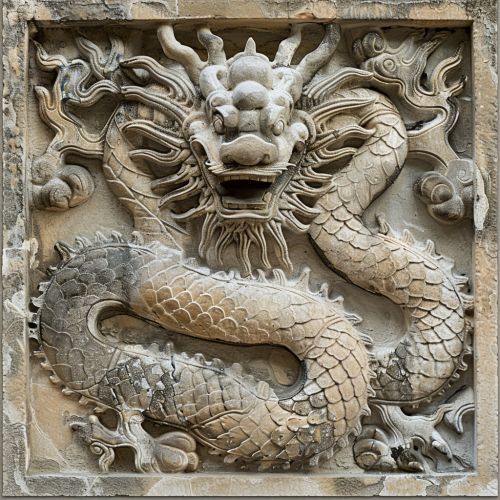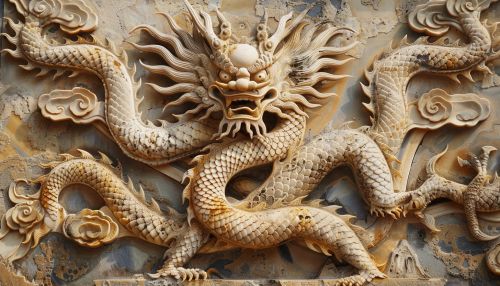Vritra
Overview
Vritra is a significant entity in Vedic mythology, often depicted as a dragon or serpent. He is known as the primary adversary of Indra, the king of the gods. Vritra is described as a being of immense power, capable of controlling the elements and obstructing the flow of rivers, causing drought and hardship for humanity.


Etymology
The name 'Vritra' is derived from the Sanskrit word 'vṛ', meaning 'to envelop' or 'to obstruct'. This is in reference to Vritra's role in the Vedic mythology as the one who obstructs the rivers and envelops the waters.
Mythological Accounts
Vritra is prominently featured in the Rigveda, one of the four sacred texts of Hinduism. In these accounts, Vritra is depicted as a dragon or serpent who hoards the waters of the world, causing drought and suffering among the people. He is eventually defeated by Indra, who uses his vajra (thunderbolt) to slay Vritra and release the waters.
Role and Symbolism
Vritra's role in Vedic mythology is often interpreted as a symbol of chaos and obstruction. His control over the waters can be seen as a metaphor for the forces of chaos that prevent the natural order of the world. His defeat by Indra represents the triumph of order and civilization over these chaotic forces.
Cultural Impact
Vritra's story has had a significant impact on Indian culture and literature. His defeat by Indra is often depicted in Indian art and literature, and is celebrated in various Hindu festivals. The story has also been interpreted in various ways by different philosophical and religious traditions within Hinduism.
